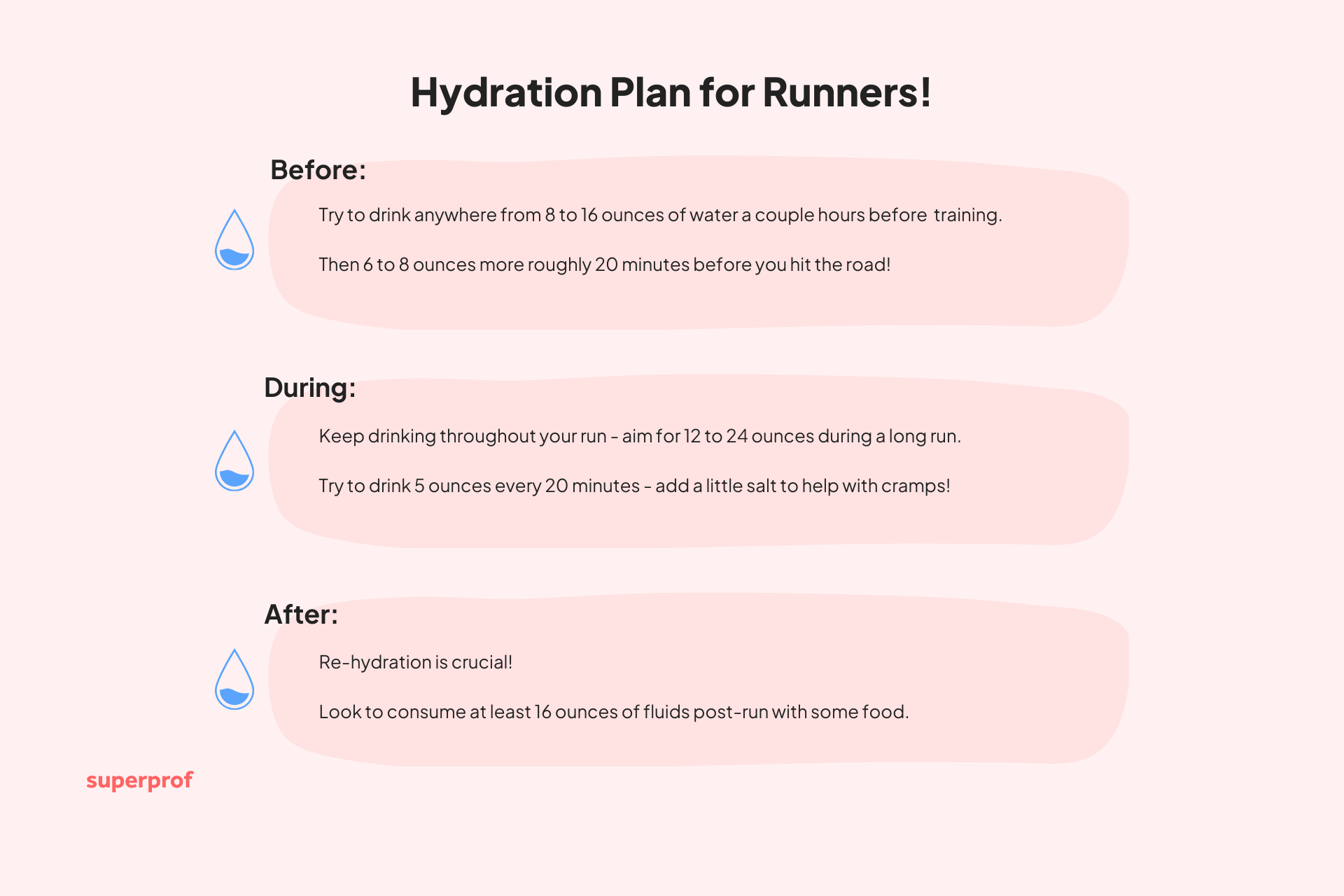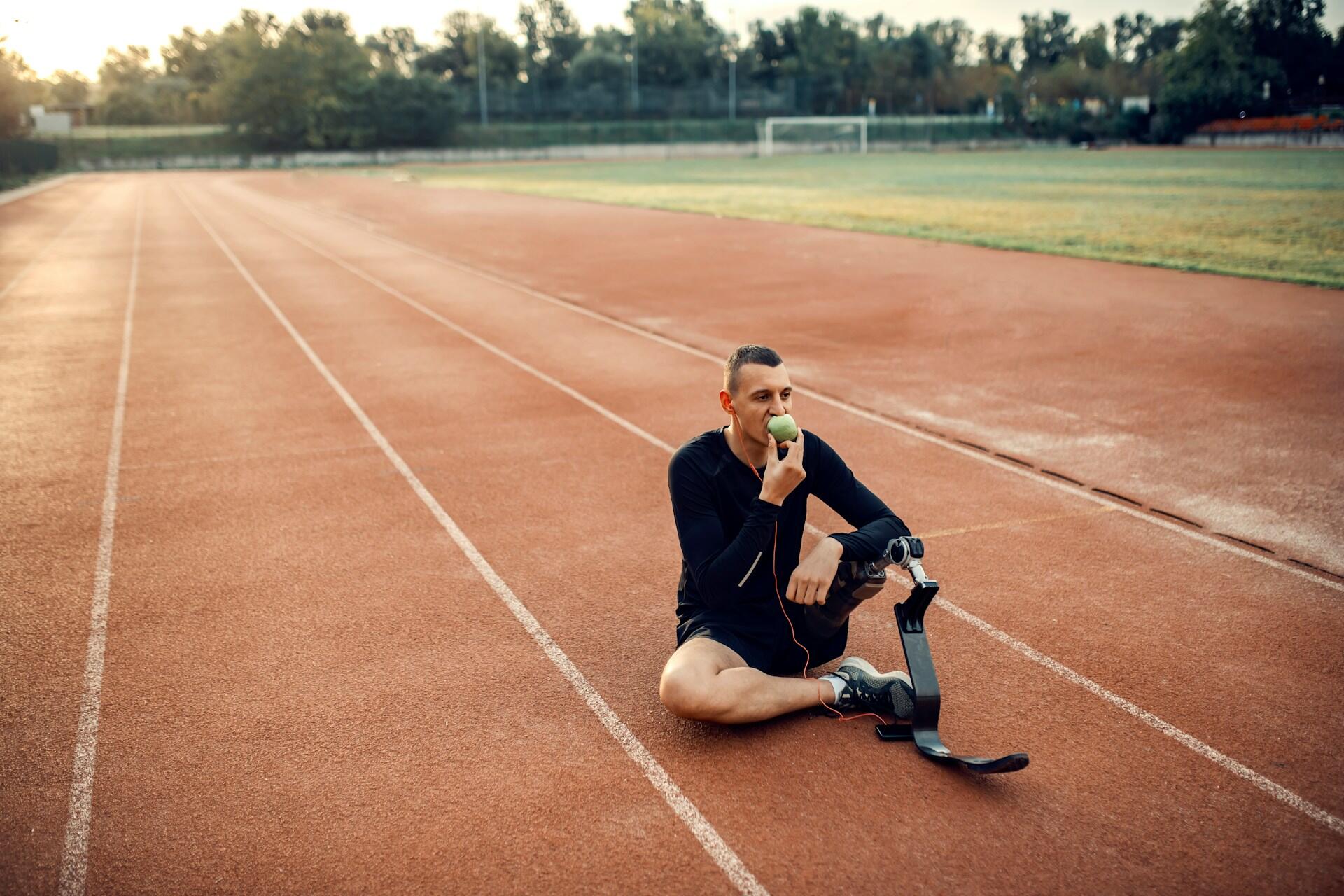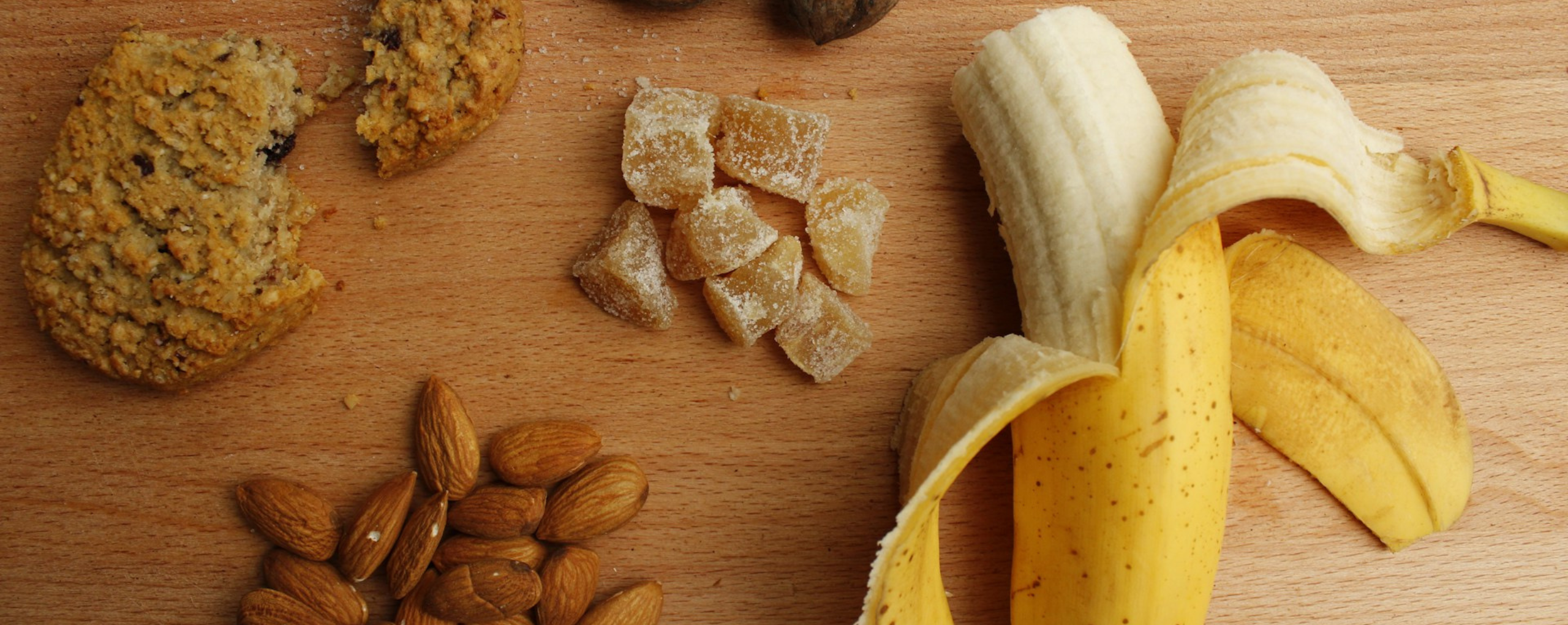Exercise is king. Nutrition is queen. Put them together and you've got a kingdom.
Jack LaLanne
To really, truly maximize your running potential, we can't neglect proper nutrition, they say abs are made in the kitchen, well cardio is too! In this section, we're going to look at how fueling your body with the not only the right nutrients, but at the right time, can take your running to the next level, speed up your recovery, and even help prevent injury. Whether you’re a seasoned marathoner or a just lacing up your shoes for the first time, understanding this connection between what we take in and what we get out of it, is fundamental to reaching your goals, and of course just feeling your best on and off the track.

What Should I Eat Before, During and After a Run?
Good question! When it comes to fueling your body for a sport like running, what you eat before, during, and after your run can and surely will impact your overall performance and recovery.
But before we move on, are you biting off more than you can chew? Assess your current running level here!
Before The Run: Putting Fuel in The Tank ⛽
For shorter distances, there is less refueling protocol during the run, so the priority is having enough energy to get out there and complete it without hitting the fatigue wall. It's recommended to eat a couple hours before to allow for adequate digestion, but keep it simple. Of course the options are infinite, but for short runs these 3 are easily digestible and fast acting carbohydrates for quick energy and a bit of protein to keep you from feeling too hungry!
For these medium distances, you are going to need to sustain your energy levels for a little longer, up to 90 minutes even! The diet doesn't vary too much from the previous one, but it's worth increasing the portion and adding a bit higher protein and some healthy fats in there. The added complex carbohydrates in these meals provide more sustainable energy, while the protein helps prevent muscle breakdown
Long runs require more attention, so eating a good portion up to 2–3 hours before your run is crucial. You want to have enough fuel to avoid "hitting the wall" midway, or even cramping up! These meals provide a mix of complex carbohydrates, protein, and a dose healthy fat to sustain your energy over long distances.
- Some fruit and nuts
- A couple slices of toast with a peanut butter and/or honey
- Yoghurt and some berries
- Oatmeal with mixed berries and chia seeds
- A whole foods smoothie with banana and protein powder, you could add some dates.
- Toast with egg and avocado
- The athlete special, grilled chicken, rice and vegetables!
- Pasta with tomato sauce and a topping of your choice
- Sweet potato with some lean protein, could be fish (for the vegans some soya protein or beans!)
During The Run: Staying at Peak Energy 🔋
If it's hot out or you're prone to cramping, take a sports drink or add some salt and honey to your water. For those runs that last over an hour, you might need to consider a couple 'perk me ups' to keep your energy high along the way.
During long runs - this is where it gets serious - it’s essential to replenish both fluids and carbohydrates to maintain yourself throughout. Typical marathon runners eat small snacks every 30-45 minutes.
For shorter runs, there typically isn't much need to refuel mid-run.
If you followed a good pre-run fueling plan, you should be good to stick to keeping hydrated!
- Energy gels
- A trusty banana if you need something more substantial
- Sports drink or home-made electrolyte replenishment
- Shop bought energy gels or bars
- Hydration packs or sports drinks
- Dried fruit, bagels, bananas, oat bites.
After The Run: Recovery and Replenishment 🐡
Recovery is key to making sure you feel fresh in the coming days. After a short run, focus on replenishing your glycogen stores and providing protein for muscle repair - nothing crazy here!
After a medium length run, your body has surely used more energy, and recovery becomes a little more important so you’ll need to focus on replenishing all of the key macronutrients, as well as those electrolytes lost!
After a long run, your body has been through some significant stress, re-fueling is more important here than ever!
Certain running/fitness apps like Whoop can give you an insight on your recovery levels on the spot!
- Protein smoothie
- Greek yoghurt with granola and berries
- A good ol' chicken sandwich
High carb vegan meal
- Eggs, toast, avocado
- Quinoa, pasta, rice, protein, veggies and a high fat dressing!
- Cottage cheese with fruit and almonds
- Chicken, turkey or vegan protein substitute with potatoes and vegetables
- Grilled salmon and all the sides!
- Protein smoothie with banana and peanut butter
- Water or an electrolyte drink to restore fluid balance
Staying Hydrated: How Much Water Do You Really Need?
Drinking enough water before, during, and after your run is arguably the most important of all, water is our life-source after all, being sufficiently hydrated ensures that your muscles stay lubricated, your joints function smoothly, and your heart doesn’t have to work harder than it should.
Without proper hydration you may experience cramps, light headedness, premature fatigue, and you might even overheat! 🔥
Here's a quick hydration plan for those who need a little guidance:

Regardless of your current level or the result you got in our quiz, whether you’re just starting or already training for your 10th marathon, the right nutrition will support your goals and keep you running strong and there's always room for improvement in this regard!
Common Mistakes & Myths in Running Nutrition
Being one of, if not the, most popular form of exercise in the world, it's no surprise that there's no shortage of publications on the subject, advice and recommendations from everyone and anyone... From carb-loading propaganda to myths about hydration, many new runners fall into common traps that can lead to poor runs, stomach troubles, or worse. Let’s break down some of the biggest running nutrition myths and why they don’t hold up!
Myth 1:
"Running on an empty stomach burns more fat."
While fasted running can have some benefits in specific training scenarios, skipping food before a long or intense run can lead to low energy levels, muscle breakdown, cramps, discomfort and of course, poor performance. Your body needs carbohydrates to fuel endurance efforts efficiently, regardless of the sport!
Myth 2:
"Carb-loading means eating as much pasta as possible the night before a race."
Popularized by films like 'The Game Plan,' while carbohydrates are essential for endurance, overloading in one meal can lead to digestive issues, bloating, and overall sluggishness on the big day. Carb-loading should be a gradual process over 2–3 days, so that your body has time to adapt.
Myth 3:
"Drink as much water as possible to stay hydrated."
Both dehydration and over-hydration can be troublesome, it doesn't just go one way! Drinking too little can lead to fatigue and cramps as we know, but over-hydrating can cause hyponatremia (low sodium levels due to flushing out) which is a big issue and with the intensity of race conditions can cause serious damage. Be careful out there!
Myth 4:
"More gels means more energy."
Energy gels and drinks are useful for endurance running, we even recommend them, but consuming too many too quickly can cause stomach issues, nausea, and sugar crashes. Your body can only absorb so many carbohydrates per hour, so space them out, follow our advice above and pay attention to which gels you are buying and how they react with your stomach before making your race-day selection.

Some Quick Tips!
- Listen to your body! Obviously the suggestions above are subjective to taste, diet, physical condition and countless other factors, listen to your body and re-fuel accordingly.
- Replenish lost electrolytes! Take this advice with a pinch of salt... literally🧂
- Off-day nutrition matters! Maintaining balanced nutrition on rest days helps prevent energy dips, promotes overall health and builds healthy eating habits.
- Check out our complete step by step beginner's running guide 👣
Your Personal Trainer tutor is waiting for you on Superprof!
Want to give it a try?
Let our experts impress you!
Summarize with AI:

















